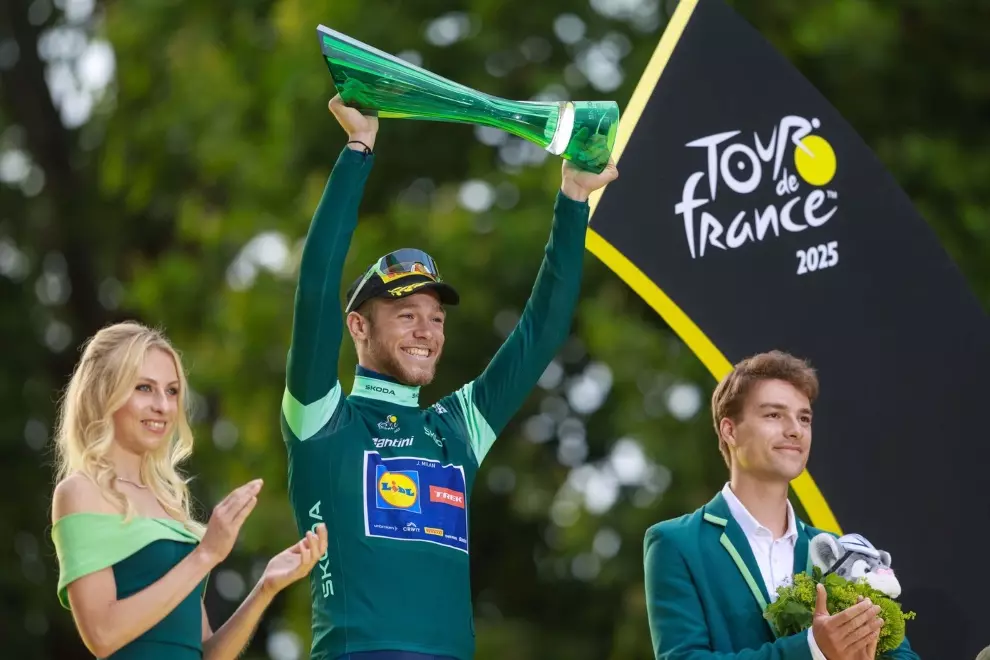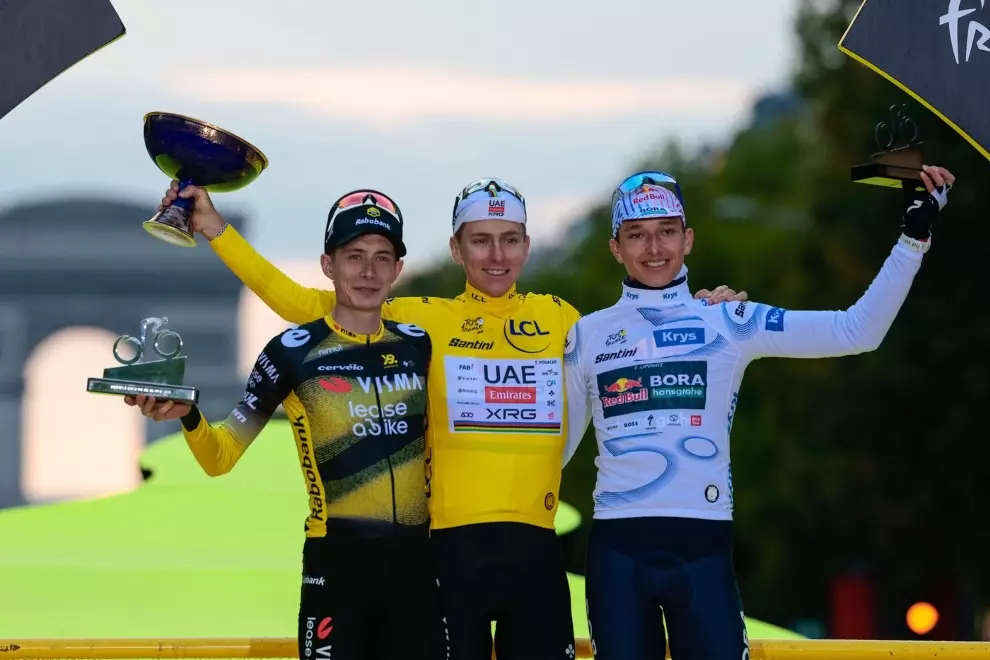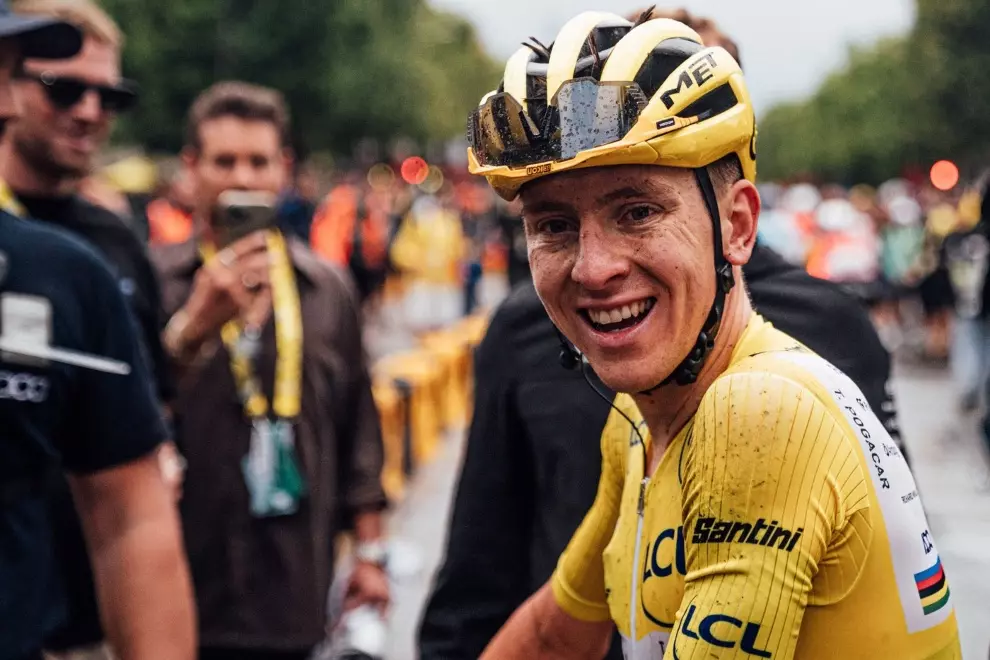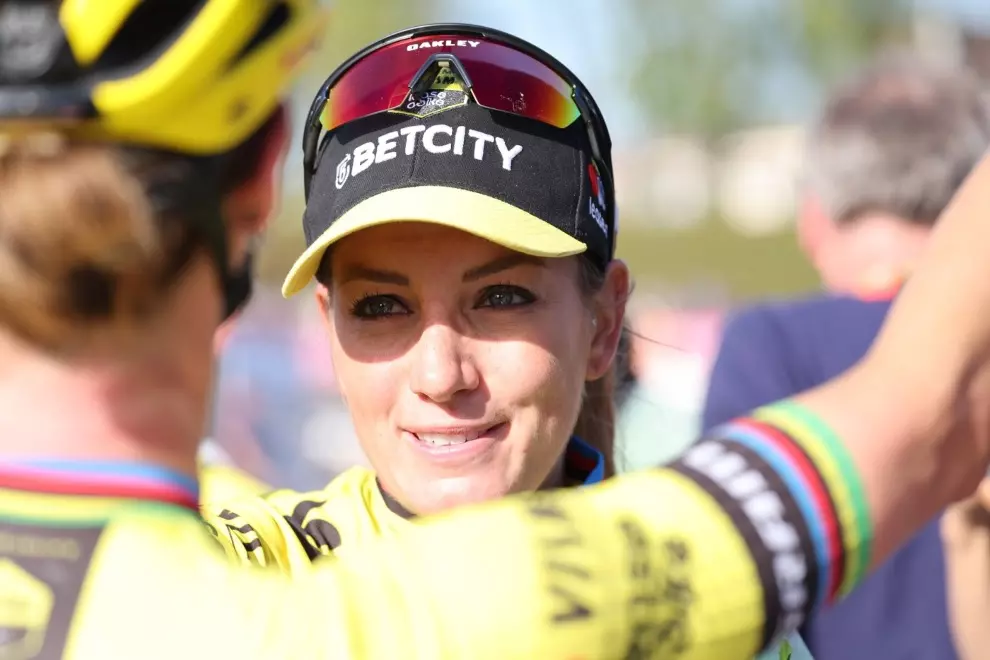As in any ordinary numerous family, not everyone gets along with everyone but in the end, sticking together and helping one out is all that matters. At least that’s how the Le Tour appears from both the riders’ and spectators’ point of view – reckless enthusiasm and celebration of peak performance that ties together even the fiercest of rivals. But a wild guess is never as good as having someone on the inside. That’s why we reached to Andy Schleck who found the time to give us a few insights, even during his busy schedule as a chairman of Škoda Tour of Luxembourg, which was just underway.
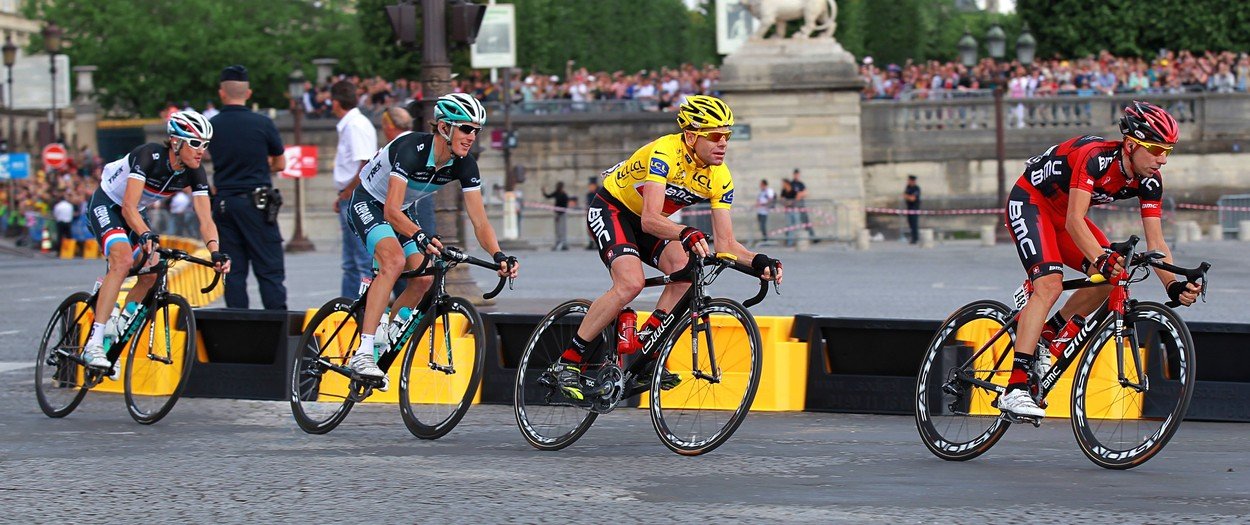
With your insider view, what do you think draws so many people towards the Tour, have you ever had a different feeling racing it than any other race?
For one, it’s one of the hardest races and physicals things overall you can do. At some point in your career, you just want to and need to try it. And even though there’s a lot of competitive spirit and rivalry, we all know we’re all in this together and, ultimately, have to support each other. Of course, winning is a big aspect of it but without the cooperation and mutual respect, it could never work.
Did you ever get that feeling of being in a big family, inside the team or out? Any concrete stories about support or camaraderie?
Of course, that’s kind of how it works, especially when something bad happens. There was one big crash in the 2010 Tour de France, not sure which stage but it was in Belgium. All the injured riders, including me, were helped by anyone who was near at that time and the group just stopped and waited until everyone was back on wheels, no one took the advantage to get a head start. Also, if you run out of water or food, people will always share, no matter their team colours. I’ve experienced many similar cases of great sportsmanship during the Tour de France.
In one of your interviews, you described the mixed emotions that come with finishing the Tour de France, finally getting the chance to spend time with family but missing teammates at the same time. Can you elaborate?
When you’re a pro rider, you spent a lot of time away from your family and they must get used to it. Then, after finishing a big race, for example, you’re really glad to be back with them but the experiences you have with your team are very specific and very much part of your life. Regarding the Tour, it’s weeks of preparations, training, and the race itself. You became basically a nomadic, “gipsy” family, locked in caravans and travelling around constantly, so you must really get along with one another because passions are high and space is limited. It’s a different kind of routine and you’re glad to be back home after all but you end up missing it anyway.

The fans lining the race course are a whole another category. Coming from all corners of the world, how strongly do you feel their presence? What do they add to the atmosphere?
Well, without them the race would be nothing, we would be nothing; they’re definitely a part of the family. 99.9 % of people along the stages are amazing and share the enthusiasm but there are cases of fans getting too close or running alongside the riders and slowing them down, even tripping them so there are injuries. You can get mad at them in such cases but always the individuals doing it, not at fans as a whole. They make the Tour what it is so there’s definitely a sense of appreciation and, of course, it’s a great feeling when so many crowds cheer you on and support you when you think you’re running on your last breath.
Are you still in contact with your teammates or crew members from the Tour days?
Not really, since I retired. Those were great days but there’s kind of an unspoken rule in the pro scene that you respect everyone’s private lives and that your paths have parted, both professionally and personally, since you’re no longer in a team with them. I still wish them luck, of course.
Do you watch the Tour? Do you have your favourites and are you in the habit of rooting for them?
As I’m busy with the Škoda Tour of Luxembourg where I act as a chairman, I get my first-hand dose of cycling action there and I’m really close to all that’s happening the entire course, so that’s the main event of the year for me now. I’m mostly aware of what’s happening during the Tour but it’s not like I sit in front of a TV all day.

What are your tips for this year’s winners or general classification leaders? Any Yellow Jersey contenders?
As I said, I’m professionally invested mostly in the Škoda Tour of Luxembourg so I didn’t even have the time to check out who’s riding this year’s Tour. But I would like to point out that the Yellow Jersey is a huge responsibility, that rests on your shoulders. I know because I’ve worn it and it’s a very “heavy” jersey. You have to really work as a team, or a family, if you will, to keep it that way.
But when I think of the names off the top of my head, you probably can’t go wrong with Thomas, Quintana, and other big names, at least one of them is a safe bet.
Andy Schleck retired from professional cycling after a crash in the 2014 Tour de France, that worsened his previously sustained injuries, especially in his knee. He now runs a bicycle shop and a café in Itzig, Luxembourg.

